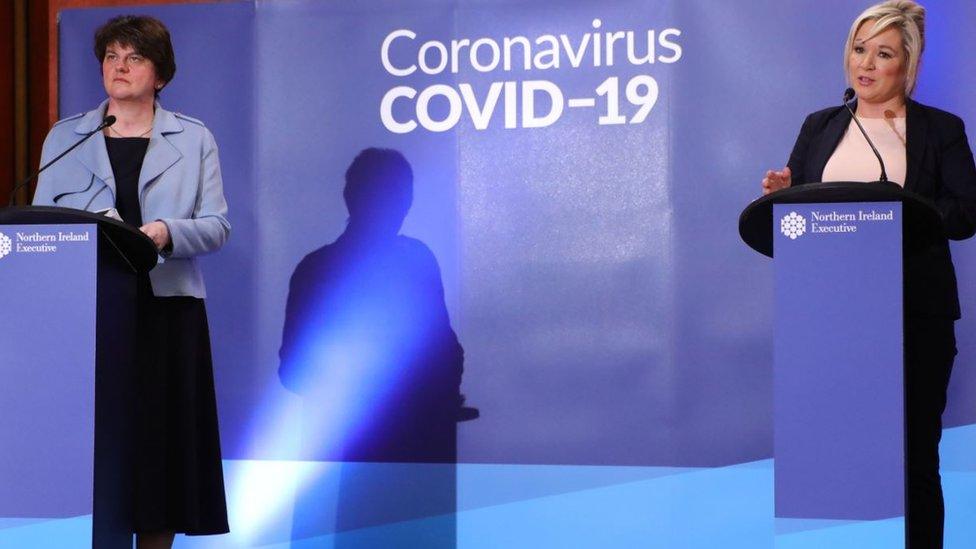Abortion: Northern Ireland opens new chapter but questions remain
- Published

No criminal charges will be brought against healthcare workers who provide a termination or assist in one
The scale of the coronavirus crisis means issues that would usually have dominated headlines have been overshadowed.
Take Northern Ireland's abortion law, a topic that has always deeply divided opinion.
That the mechanism for a new abortion framework taking effect was passed by Westminster last year, and not at Stormont, had already caused tension.
Until last week, the public had been kept in the dark about the exact detail of what abortion services in Northern Ireland would look like from today.
The changes really are significant, allowing terminations in all circumstances in the first 12 weeks of pregnancy and beyond that in other situations with no term limits applying in cases of fatal fetal abnormalities.
Implementation challenge
For some, the law will not go far enough. For others, it will go far beyond what they would support.
Some medical professionals have said they remain concerned about whether the clause on conscientious objection will protect them.
Aside from the ethical debate about term limits, there are also real questions about how these abortion services will work.
The Northern Ireland Office, which drew up the regulations after a public consultation, insisted the new law would bring NI largely into line with what exists in Great Britain, as well as protecting women and providing clarity for the medical profession.
But it will fall to Stormont's Department of Health to oversee the law in practice.
Given it is trying to cope with Covid-19, getting to grips with the new framework will pose quite a challenge.
Until the services are in place, women and girls who require a termination can still avail of services in England.
But some doctors and pro-choice groups have expressed concerns about the difficulties in travelling, given the restrictions on movement imposed by the government, in a bid to tackle the virus.
What should happen, for instance, where a woman who wants to access abortion services is self-isolating?
Political ripples
The framework only allows for women in Northern Ireland who terminate an early pregnancy (up to 10 weeks) to take one abortion pill at home, and the other at a clinic or hospital.
There have been calls here for both pills to be able to be taken at home and be guided by medical professionals - through what's known as telemedicine - but it is not clear if that will be allowed to happen, as the Covid-19 crisis grows.
While the politicians are grappling with a public health emergency like no other, there are ripples of deep dissatisfaction at Stormont about these new abortion regulations.

Arlene Foster and Michelle O'Neill hold very different views on the new legislation
While Sinn Féin's Michelle O'Neill welcomed the shift, her power-sharing partner, DUP leader Arlene Foster, whose party opposed the change in the law, said it was a "sad day" for Northern Ireland.
Last week, MLAs on Stormont's health committee also seemed totally confused about whether the assembly could make any retrospective changes to what has been decided by the British government.
It is my understanding that the regulations can't simply be overturned as Parliamentary sovereignty trumps that of the devolved institutions - but that isn't to say some parties in the assembly won't want to look at their legislative options, in due course.
Both pro-choice and anti-abortion groups will also want to ensure their voices are heard, as neither side of the campaign is wholly content with what is coming into force.
Today marks the beginning of a new, albeit, uncertain chapter when it comes to abortion services in Northern Ireland - it will take time before the effects of the legislation are fully realised and understood.
- Published25 March 2020

- Published22 October 2019
